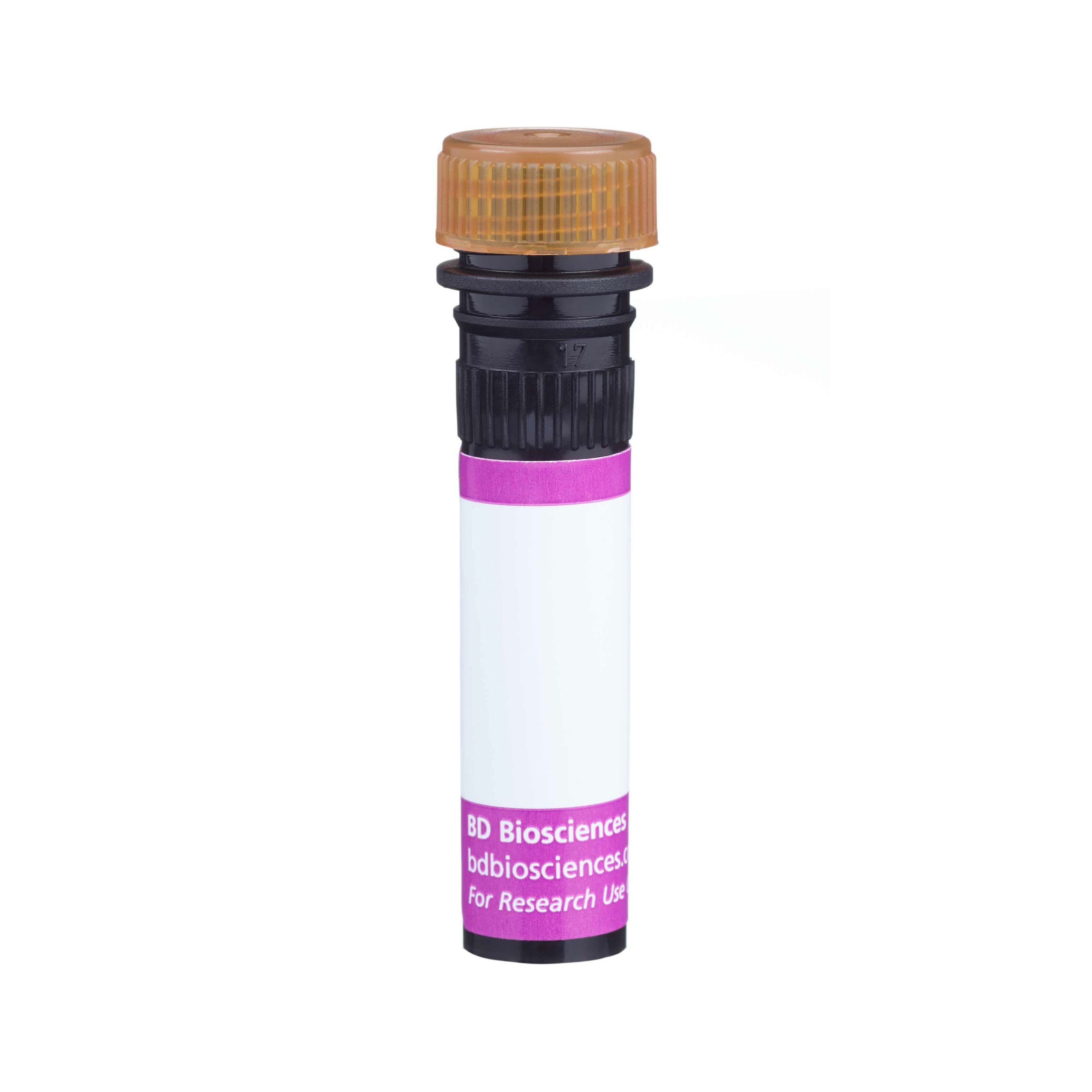Old Browser
This page has been recently translated and is available in French now.
Looks like you're visiting us from {countryName}.
Would you like to stay on the current country site or be switched to your country?


Regulatory Status Legend
Any use of products other than the permitted use without the express written authorization of Becton, Dickinson and Company is strictly prohibited.
Preparation And Storage
Recommended Assay Procedures
For optimal and reproducible results, BD Horizon Brilliant Stain Buffer should be used anytime two or more BD Horizon Brilliant dyes (including BD OptiBuild Brilliant reagents) are used in the same experiment. Fluorescent dye interactions may cause staining artifacts which may affect data interpretation. The BD Horizon Brilliant Stain Buffer was designed to minimize these interactions. More information can be found in the Technical Data Sheet of the BD Horizon Brilliant Stain Buffer (Cat. No. 563794).
Product Notices
- This antibody was developed for use in flow cytometry.
- The production process underwent stringent testing and validation to assure that it generates a high-quality conjugate with consistent performance and specific binding activity. However, verification testing has not been performed on all conjugate lots.
- Researchers should determine the optimal concentration of this reagent for their individual applications.
- An isotype control should be used at the same concentration as the antibody of interest.
- Caution: Sodium azide yields highly toxic hydrazoic acid under acidic conditions. Dilute azide compounds in running water before discarding to avoid accumulation of potentially explosive deposits in plumbing.
- For fluorochrome spectra and suitable instrument settings, please refer to our Multicolor Flow Cytometry web page at www.bdbiosciences.com/colors.
- Please refer to www.bdbiosciences.com/us/s/resources for technical protocols.
- BD Horizon Brilliant Stain Buffer is covered by one or more of the following US patents: 8,110,673; 8,158,444; 8,575,303; 8,354,239.
- BD Horizon Brilliant Violet 786 is covered by one or more of the following US patents: 8,110,673; 8,158,444; 8,227,187; 8,455,613; 8,575,303; 8,354,239.
- Cy is a trademark of GE Healthcare.
Companion Products






The 13E11 monoclonal antibody specifically binds to CC chemokine receptor-like 1 (CCRL1) that is also known as C-C chemokine receptor type 11 (C-C CKR-11), or ChemoCentryx chemokine receptor (CCX-CKR). CCRL1 is a seven-transmembrane glycoprotein receptor that is encoded by ACKR4 (Atypical chemokine receptor 4) which belongs to the atypical chemokine receptor subfamily within the chemokine receptor superfamily. CCRL1 is expressed on stromal cells of lymph nodes, dermal lymphatic endothelial cells, and thymic epithelial cells. CCRL1 binds to several "homeostatic" chemokines including CCL19 (ELC), CCL21 (SLC), CCL25 (TECK) and CXCL13 (BLC) that can otherwise bind to functional chemokine receptors like CCR7, CCR9 or CXCR5. CCRL1 can thus serve as a decoy receptor that allows cellular uptake and degradation of these chemokines in a G protein-independent manner. This receptor may shape chemokine gradients in tissues by scavenging chemokines and thereby regulate the chemotaxis of thymic precursor cells, various leucocytes, including lymphocytes and dendritic cells, and cancer cells. CCRL1 expression is upregulated on some breast and hepatic cancer cell lines. The 13E11 antibody reportedly has ligand-like activity that results in the cellular internalization of CCRL1. This antibody recognizes an epitope in the N-terminus of the first extracellular domain of CCRL1.
The antibody was conjugated to BD Horizon™ BV786 which is part of the BD Horizon Brilliant™ Violet family of dyes. This dye is a tandem fluorochrome of BD Horizon BV421 with an Ex Max of 405-nm and an acceptor dye with an Em Max at 786-nm. BD Horizon BV786 can be excited by the violet laser and detected in a filter used to detect Cy™7-like dyes (eg, 780/60-nm filter).

No Citations are available for this Product
Please refer to Support Documents for Quality Certificates
Global - Refer to manufacturer's instructions for use and related User Manuals and Technical data sheets before using this products as described
Comparisons, where applicable, are made against older BD Technology, manual methods or are general performance claims. Comparisons are not made against non-BD technologies, unless otherwise noted.
For Research Use Only. Not for use in diagnostic or therapeutic procedures.
Report a Site Issue
This form is intended to help us improve our website experience. For other support, please visit our Contact Us page.